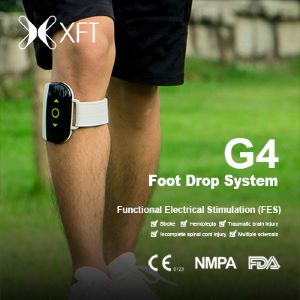Clinical Practice
Effects of a Supervised Inpatient Gratitude Walking Program on Rural Veteran Populations
Wednesday, November 1, 2023
12:10 PM - 12:16 PM
Location: Station 1

Rosanna Wynne, RN, MSN, NE-BC
Whole Health Nurse Manager
Carl Vinson VA Medical Center
Cochran, Georgia, United States
Brandan M. Wormsbacher, MD, AAFP
Chief of Medicine - Physician
Veteran Affairs
Dublin, Georgia, United States
Presenting Author(s)
Non-presenting author(s)
Research Objectives: To determine if there will be a change in quality care metrics using a supervised inpatient gratitude walking program. Also, to investigate if implementation of this program could improve early detection of mood disorders.
Design: Correlational, Cross-sectional
Setting: Hospitalized Care
Participants: Hospitalized Veterans (N=54) from May 2022 to March 2023 who scored between 7 to 16 on the Tinetti Gait/Balance assessment tool and agreed to daily 20-minute walks during admission.
Interventions: Daily 20-minute gratitude walk with hospitalized patients who qualified.
Main Outcome Measures: Impact of gratitude walks on Internal State Scale Version 2 (ISS-2) score during hospitalization and 2 weeks after hospitalization. Length of stay, and Readmission Rates.
Results: Data shows that 54 of 189 veterans met program inclusion criteria. The impact of gratitude walks on ISS-2 scores improved both the well-being scores and the depression scores. The ISS-2 tool correlates a greater well-being score as better, at time of admission the average score was 188 and the average score 2-weeks post discharge was 216 (ARR = 0.51, RRR = 12.9%, NNT = 1.9). The ISS-2 tool correlates a lower depression score as better, at the time of admission the average score was 207 and the average score 2-weeks post discharge was 162 (ARR = 0.83, RRR = 21.7%, NNT = 1.2). However, there was no significant change in length of stay (6.4 days vs. 6.8 days) for the facility compared to previous scores. Hospital wide readmissions were improved for some specific disease process like COPD and pneumonia but worse for congestive heart failure. A direct correlation of readmission metrics to the intervention could not be concluded.
Conclusions: Initiation of daily early mobilization program in combination with gratitude exercises can decrease the risk of post-hospital depression and improve well-being. Contributing to better health outcomes and mental health at all stages of recovery.
Author(s) Disclosures: Authors have no disclosures to make.
Design: Correlational, Cross-sectional
Setting: Hospitalized Care
Participants: Hospitalized Veterans (N=54) from May 2022 to March 2023 who scored between 7 to 16 on the Tinetti Gait/Balance assessment tool and agreed to daily 20-minute walks during admission.
Interventions: Daily 20-minute gratitude walk with hospitalized patients who qualified.
Main Outcome Measures: Impact of gratitude walks on Internal State Scale Version 2 (ISS-2) score during hospitalization and 2 weeks after hospitalization. Length of stay, and Readmission Rates.
Results: Data shows that 54 of 189 veterans met program inclusion criteria. The impact of gratitude walks on ISS-2 scores improved both the well-being scores and the depression scores. The ISS-2 tool correlates a greater well-being score as better, at time of admission the average score was 188 and the average score 2-weeks post discharge was 216 (ARR = 0.51, RRR = 12.9%, NNT = 1.9). The ISS-2 tool correlates a lower depression score as better, at the time of admission the average score was 207 and the average score 2-weeks post discharge was 162 (ARR = 0.83, RRR = 21.7%, NNT = 1.2). However, there was no significant change in length of stay (6.4 days vs. 6.8 days) for the facility compared to previous scores. Hospital wide readmissions were improved for some specific disease process like COPD and pneumonia but worse for congestive heart failure. A direct correlation of readmission metrics to the intervention could not be concluded.
Conclusions: Initiation of daily early mobilization program in combination with gratitude exercises can decrease the risk of post-hospital depression and improve well-being. Contributing to better health outcomes and mental health at all stages of recovery.
Author(s) Disclosures: Authors have no disclosures to make.
Learning Objectives:
- Upon completion, participants will be able to integrate interdisciplinary tools as part of a supervised inpatient walking program.
- Upon completion, participants will obtain the ability to recognize patients who may benefit from inpatient walking programs.
- Upon completion, participants will be able to discriminate which quality care metrics could be effectively impacted by implementing an early mobility program with a behavioral health and integrative medicine focus.

.jpg)
